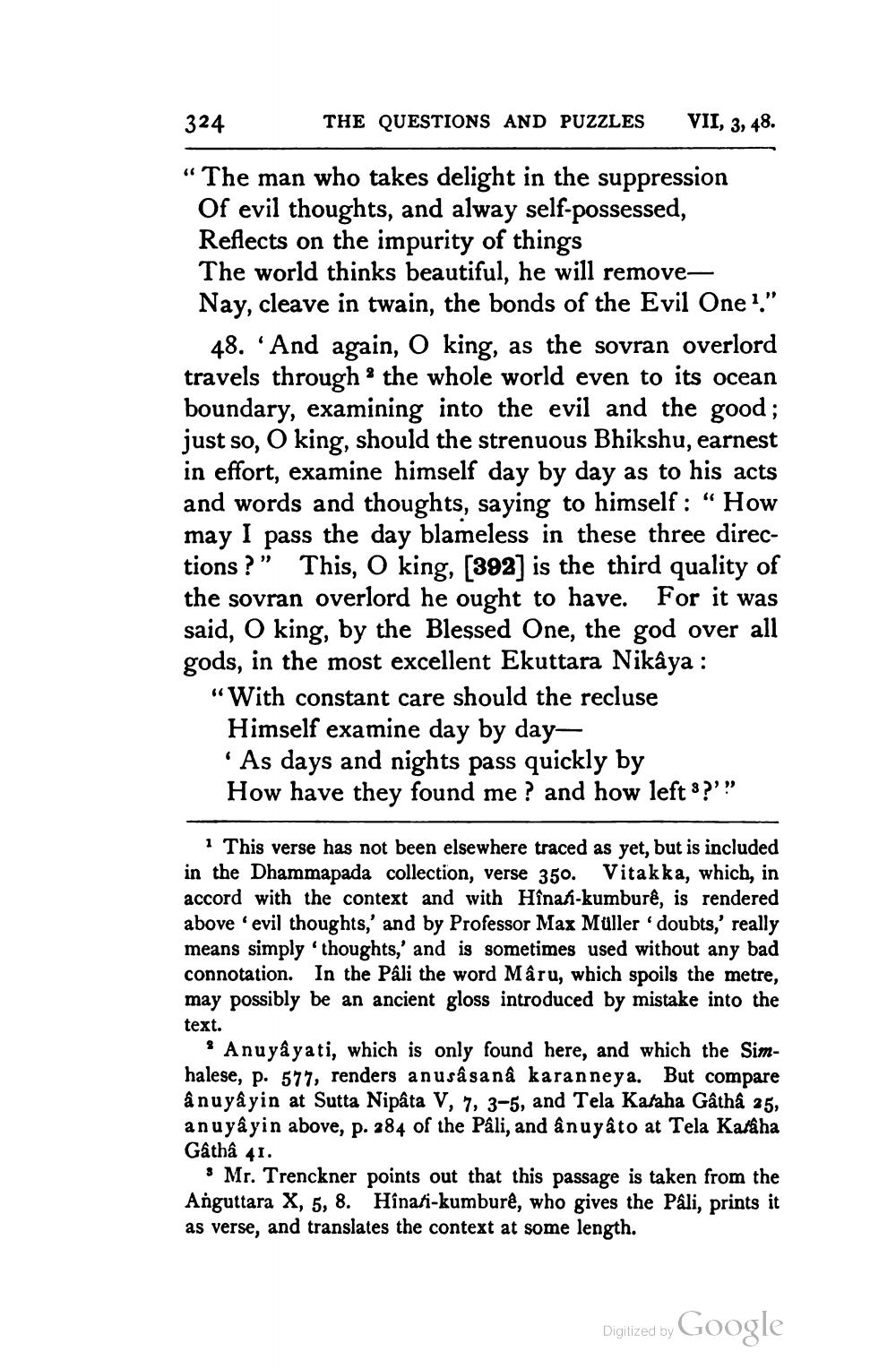________________
324
THE QUESTIONS AND PUZZLES
VII, 3, 48.
“The man who takes delight in the suppression
Of evil thoughts, and alway self-possessed, Reflects on the impurity of things The world thinks beautiful, he will removeNay, cleave in twain, the bonds of the Evil One ?."
48. 'And again, O king, as the sovran overlord travels through the whole world even to its ocean boundary, examining into the evil and the good; just so, O king, should the strenuous Bhikshu, earnest in effort, examine himself day by day as to his acts and words and thoughts, saying to himself: "How may I pass the day blameless in these three directions ?” This, O king, (392) is the third quality of the sovran overlord he ought to have. For it was said, O king, by the Blessed One, the god over all gods, in the most excellent Ekuttara Nikâya : "With constant care should the recluse Himself examine day by day
As days and nights pass quickly by How have they found me? and how left 8?!?
1 This verse has not been elsewhere traced as yet, but is included in the Dhammapada collection, verse 350. Vitakka, which, in accord with the context and with Hînan-kumburê, is rendered above evil thoughts,' and by Professor Max Müller doubts,' really means simply thoughts,' and is sometimes used without any bad connotation. In the Pâli the word Mâru, which spoils the metre, may possibly be an ancient gloss introduced by mistake into the text.
Anuyâyati, which is only found here, and which the Simhalese, p. 577, renders anusâsana karanneya. But compare â nuyayin at Sutta Nipâta V, 7, 3-5, and Tela Kataha Gâtha 25, anu yayin above, p. 284 of the Påli, and ânuyâto at Tela Katha Gatha 41.
* Mr. Trenckner points out that this passage is taken from the Anguttara X, 5, 8. Hînati-kumburê, who gives the Pali, prints it as verse, and translates the context at some length.
Digitized by Google




